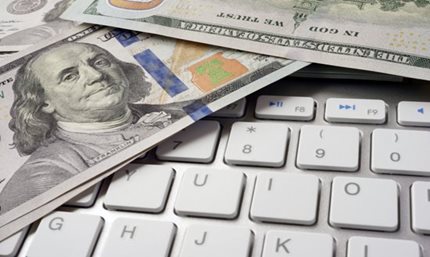Overpayment scams pose a threat to online shoppers and those who frequently do business online. Fraudsters are looking for opportunities to capitalize on victims in online market places such as EBay, Craigslist, and Etsy. Here is some insight on how this scam works, and ways that you can protect yourself:
How the Scam Happens
Let’s say you run an online store on EBay, and you’ve listed a product for which a potential buyer/customer is offering more than the average market price. The buyer tries to convince you by stating that the overpayment will cover the cost of international fees such as shipping costs. You are then contacted later to be informed that it was an overpayment, and you are instructed to deposit a check, or make a wire transfer to pay a portion of it back. People who follow through are saddened to discover that the payment made by the scam artist was fraudulent. So, not only are you out the money you wired the scammer, but you may have to reimburse your bank as well.
Signs to Look Out For
There are other variations of this scam. You might be told you won a lottery from a foreign country, or that you’re being pre-paid to be a secret shopper. If you’re asked to wire back part of a check, any check, instantly be suspicious. If this was legitimate, why wouldn’t they simply keep that portion of the funds and send you the rest? Moreover, be wary of any claims of lottery winnings, especially from a foreign country.
Also, be on the lookout for odd phrases, or strange formatting in conversations when you are doing business online. Any product that someone insists on making an immediate payment higher than the average market price is more than likely a scam.
How You Can Protect Yourself
Avoid engaging in any suspicious conversations when buying or selling items online; responding will only encourage the fraudsters to come up with more ways to trick you.
Only use payment methods that you are familiar with and avoid making payment arrangement with strangers, especially if they are offering to make payments through money order, wire transfer, international funds transfer, or electronic currency like Bitcoin.
If you believe you’ve received a fake check by mail, inform the
US Postal Inspection Service. If you think a check you’ve received is counterfeit, no matter how it arrives, tell the Federal Trade Commission, either
online or by calling 877-382-4357.
As a friendly reminder, SCCU will never solicit personal or account information through phone, text, or other means that a member did not initiate first. We advise our members to contact our
Member Service Center for any questions or concerns regarding their personal accounts.

